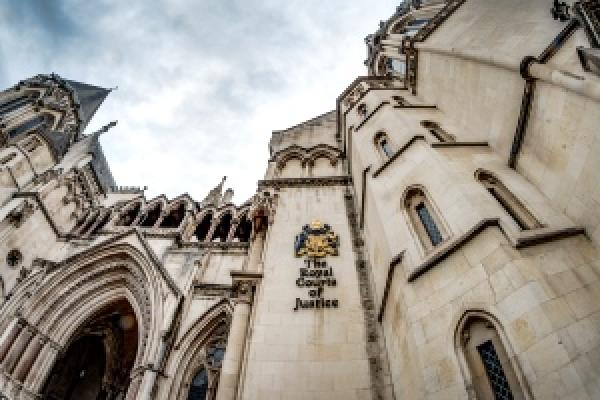
Steamship Mutual
Published: January 20, 2017

The English courts have decided a number of major shipping cases during 2016.
SUPPLY OF BUNKERS
RES COGITANS
Probably the most controversial case was the OW Bunkers dispute, where the Supreme Court upheld the decision of the Court of Appeal that, despite its references to buyers and sellers, OW Bunkers’ standard contract was not a contract of sale, but a permit for the owners of the "RES COGITANS" to consume bunkers, even if title had not passed to the OW Bunkers company, and could not be transferred to the Shipowner. So the Owners of "RES COGITANS" were found liable to pay the OW Bunkers company at English law, even if they might also face a valid claim from the physical supplier of the bunkers in some other jurisdiction.
TIME CHARTERS
GLOBAL SANTOSH
The "GLOBAL SANTOSH" had been time-chartered by her owners to Cargill, with a series of further charterers beyond Cargill. The time charter, on NYPE form, held that the ship would be off-hire for time lost by reason of an arrest, unless the arrest was “occasioned by any personal act or omission or default of the charterers or their agents”. In December 2008, the ship was arrested, apparently mistakenly, by one of the receivers of the cargo. Owners argued that any sub-charterers and their agents were to be considered as agents of the charterers for the purpose of this clause. The Supreme Court held that the arresting party was not acting in the role of Cargill’s agents in making the arrest, or acting on Cargill’s behalf in so doing, and that the ship was off-hire for the time lost.
ASTRA
In October, the Court of Appeal resolved a recent controversy about the effect of a failure to make a hire payment under a time charter. In a High Court decision in 2013, the "ASTRA", Flaux J held that the obligation to make punctual payment of each instalment of hire was a condition of the charterparty contract, and that any failure to do this entitled to Owners to withdraw from the time charter and to claim damages. In a 2015 High Court case, Spar Shipping v Grand China Logistics, Popplewell J disagreed with this, and held that the timely payment of hire in full was not a condition of the contract. Given the controversy over this point, an appeal was allowed, and the Court of Appeal has now held that the ASTRA was wrongly decided. The Court of Appeal went on to give useful guidance on when an Owner might consider that a charterparty has been repudiated by charterer’s actions or failures to perform.
WEHR TRAVE
Time Charter Trips are common in the commercial world, but there is little case law about such contracts. In May, in the "WEHR TRAVE", the High Court considered the question of when a “trip” is a trip, and decided that in this case the charterers were entitled to make two cargo voyages as part of one trip.
YANGTZE XING HUA
In a dispute about the effect of the Inter Club Agreement in a time charter, the "YANGTZE XING HUA", the High Court held that, where the ICA states that a cargo claim will be borne 100% by one party to the charter, where “there is clear and irrefutable evidence that the claim arose out of the act or neglect of the one or the other (including their servants or sub-contractors)” then the “act” of one party does not necessarily require any fault of that party or their servant.
VOYAGE CHARTERS
MSC v COTTONEX
In a demurrage case, MSC v Cottonex, actually involving demurrage accruing on containers trapped in a port, the Court of Appeal seemed reluctant to allow that the contract, and the right to accrue demurrage, could continue indefinitely, and decided that the contracts for carriage of the containers had been repudiated by a delay which frustrated the commercial purpose of the venture, such that the contracts, and the right to demurrage, automatically came to an end.
D’AMICO SHIPPING v ENDOFA
In D’Amico Shipping v Endofa, the High Court decided that Owners’ claim for an outstanding balance of freight was a claim for a debt owed, not a claim for damages, so that the Owners were not under any obligation to mitigate their loss.
CARRIAGE OF GOODS BY SEA
VOLCAFE v CSAV
In the case Volcafe v CSAV [2016] EWCA Civ 1103, the claims by Volcafe and other coffee merchants against container line CSAV were for a sum of only $62,500 and the legal costs involved have probably greatly exceeded the sum in dispute. The case has brought some clarity to English law with respect to the application of the Hague-Visby Rules. Bags of coffee, in containers, had been shipped, clean on board but arrived with condensation damage. The High Court had held that the onus was on the carrier to prove that they had not been negligent in the carriage, and the carrier could not do so. The Court of Appeal held that, once the carrier had established a prima facie case that the damage was due to inherent vice (one of that Art. IV rule 2 exceptions), then the burden shifted to the cargo claimant, who had to prove negligence of the carrier. On the facts of this claim, the court held that the damage to the coffee was due to inherent vice, and the carrier’s appeal against the High Court decision was allowed.
Leave to appeal the Court of Appeal decision was granted in early May 2017.
The AQASIA
In the "AQASIA", in October 2016, the High Court decided that the package limitation of the Hague Rules does not apply to bulk cargoes, although the Hague-Visby rules do have a provision allowing for limitation per package or per kilogramme of gross weight, whichever is higher.
SUPERIOR PESCADORES
In the SUPERIOR PESCADORES, the Court of Appeal held that parties to the carriage of goods covered by a congenbill of lading were subject to the limitations of the Hague-Visby Rules, and not the Hague Rules.
GENERAL AVERAGE
LONGCHAMP
The "LONGCHAMP" was captured by pirates in the Gulf of Aden, and after a period of negotiation a ransom of US$1.85 million was agreed and paid to release the vessel and her crew. The ransom payment was allowed as a General Average expense and cargo interests paid their share. However, cargo interests did not agree that the Owners’ cost of crew wages, bonuses, maintenance and the bunkers consumed during the detention were GA expenses. The High Court agreed these cost were GA expenses under Rule F of YAR 1974 and had “no doubt” that the expenditure was incurred in substitute for a higher ransom payment. The Court of Appeal also agreed because there was no alternative course of action open to Owners.
LIMITATION OF LIABILITY
The burden of proof in seeking to break limitation under The Convention on Limitation of Liability for Maritime Claims 1976 (as amended by the 1996 Protocol) lies on the party seeking to do so, and is a heavy one because of the nature of the conduct which must be proved. In the "ATLANTIK CONFIDENCE", the vessel sank in deep water and could not be inspected with a view to determining the cause of the fire or the cause of the sinking. However, limitation was denied. After considering all the evidence the judge concluded that whilst the improbable can happen it was difficult to accept that three improbable events may have occurred in rapid succession to cause the loss of the vessel. The decision does not suggest any weakening of the test to deny limitation.
APPEALS SCHEDULED FOR 2017
NEW FLAMENCO
The Supreme Court is due to decide a damages case; specifically whether future events should be taken into account when assessing damages. The issue in this case was whether credit should be given for the increased sale value of a vessel, the "New Flamenco", when the charterparty was repudiated in 2007, compared to the value that the vessel would have had at the end of the charterparty in 2009, if Charterers had not repudiated. The arbitrator agreed with the Charterers who were, therefore, entitled to credit in the amount of US$16,765,000 in respect of the benefit accrued to Owners by selling the vessel in 2007. The High Court disagreed and decided Charterers were not entitled to a credit as the benefit was not legally caused by the breach. In the Court of Appeal, and whilst recognising this is a difficult area of law, Longmore LJ was of the view that the arbitrator had made a “common sense overall judgment”.
The Supreme Court decision was published on 28 June 2017 - The "New Flamenco" - Supreme Court Decision
OCEAN VICTORY
The Supreme Court is also due to decide an unsafe port dispute. The vessels became a total loss while leaving the port for open water when the berth was affected by considerable swell caused by winds of up to Beaufort Force 9. A claim in excess of US$135 million was brought against the time charterers. The High Court decided there had been a breach of the charter safe port warranty and the storm was not an abnormal event. The Court of Appeal disagreed with the judges approach on the question of an abnormal event and decided there had been such an event, and thus that there was no breach by Charterers of the safe port warranty. The appeal before the Supreme Court is on three grounds – was there an abnormal occurrence, the loss of the vessel and joint insurance and on a question that had been reserved below the Court of Appeal, the right of a Charterer to limit its liability. Read Steamship Mutual's latest article on the "Ocean Victory".
The Supreme Court decision was published on 10 May 2017 - 'Ocean Victory Update - Supreme Court Clarification on Unsafe Port'.
Although not an appeal for 2017, in a Privy Council case, the "CAPE BARI", on appeal from the Bahamas, it was held that a Master could waive a shipowner’s entitlement to limit liability by signing and accepting Conditions of Use for a port or terminal that had this effect. The decision underlines the importance of careful contract review when accepting 'Conditions of Use' or other contracts to ensure the right to limit liability is not unintentionally lost with, to the extent limitation is surrendered, the consequent potential for prejudice to Club Cover.
YANGTZE XING HUA
See above under TIME CHARTERS. It is understood that leave to appeal from this decision has been granted.
LONGCHAMP
See above GENERAL AVERAGE
The Supreme Court decision was published on 25 October 2017 - Article to follow.


